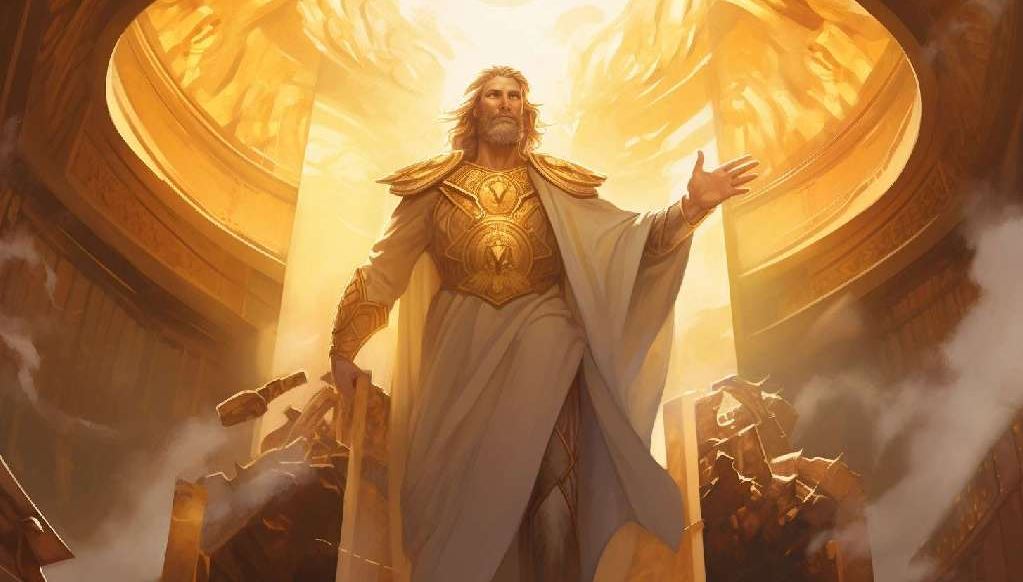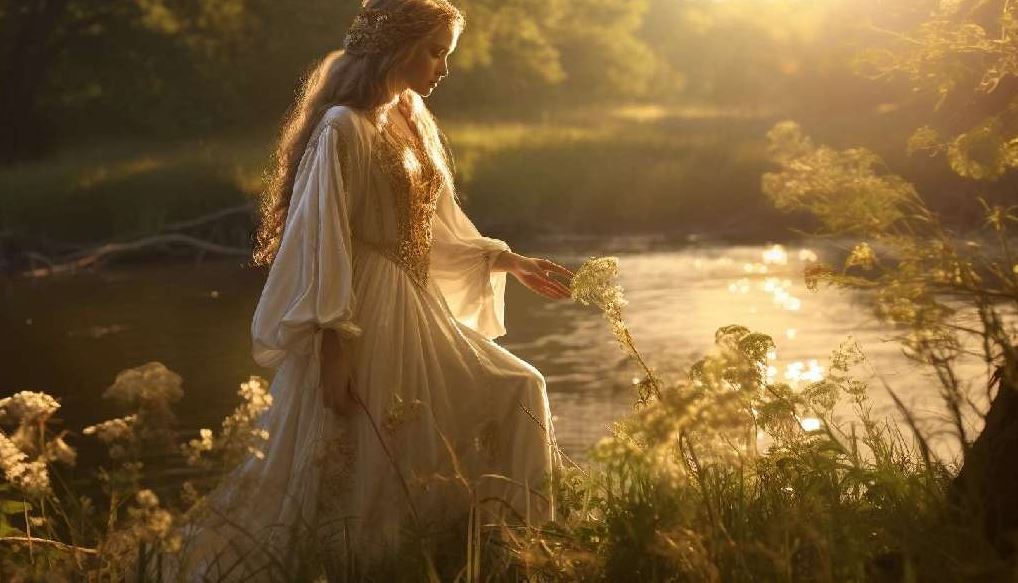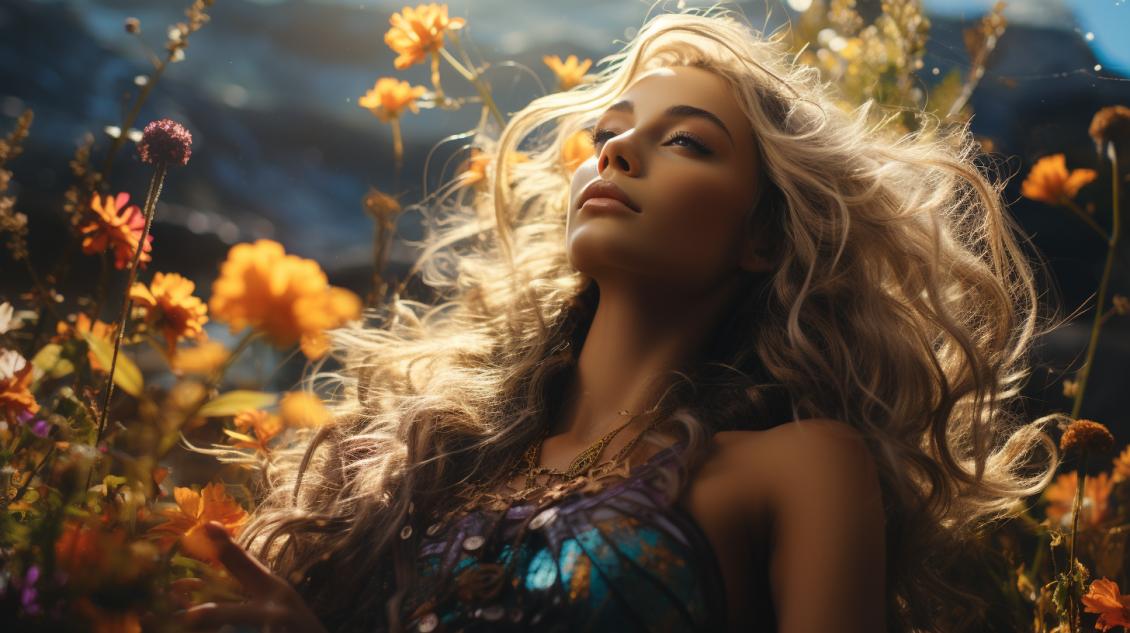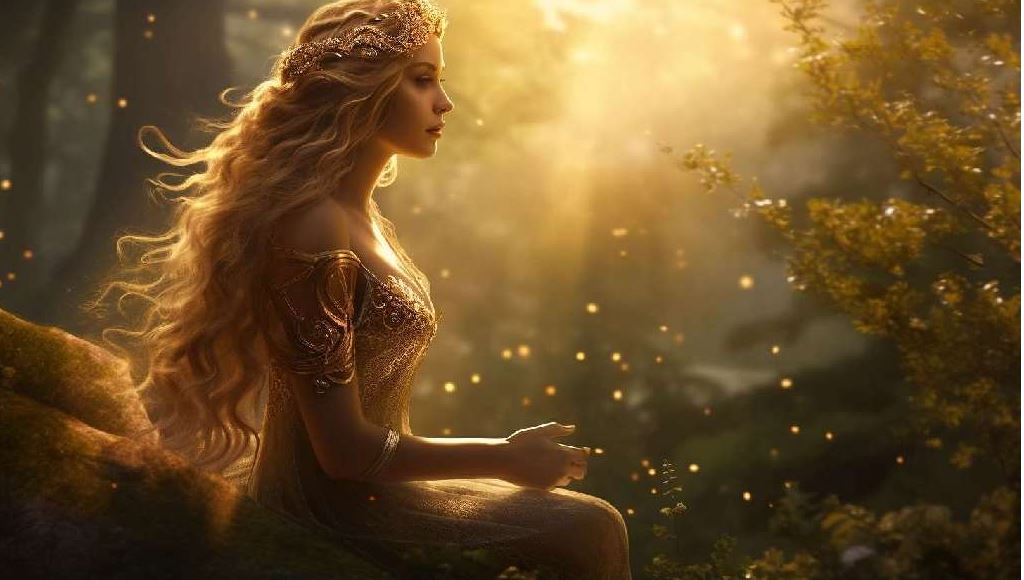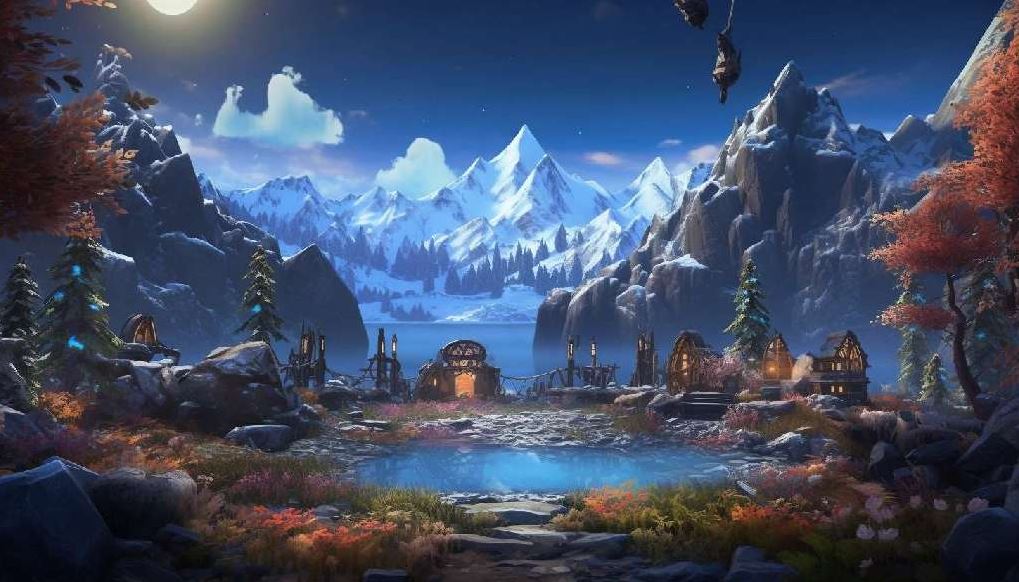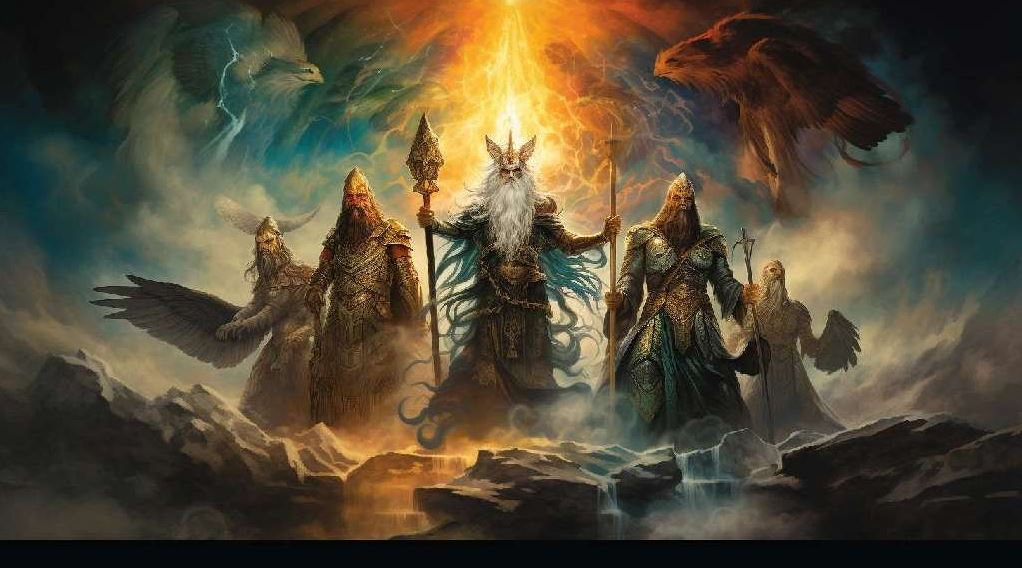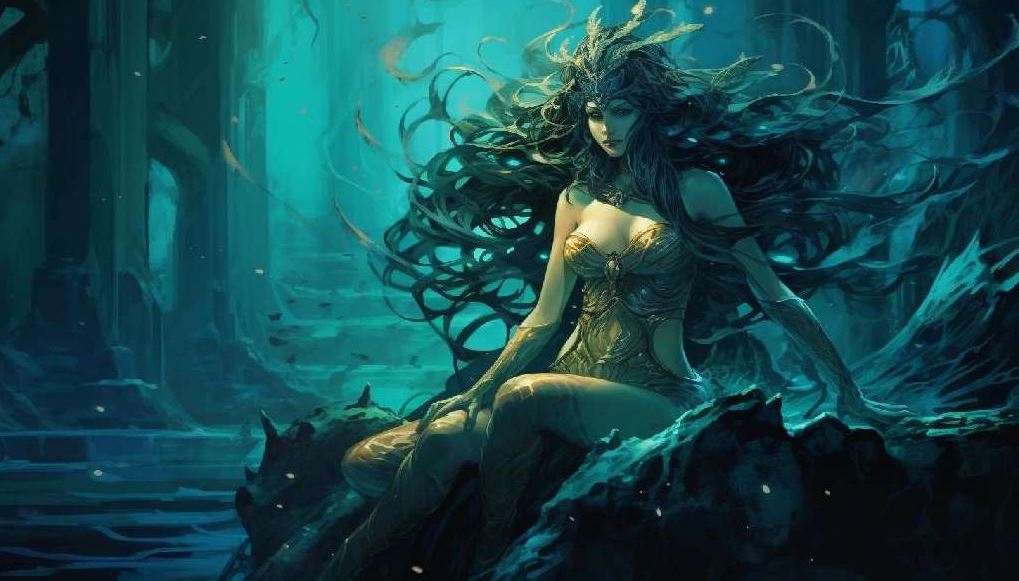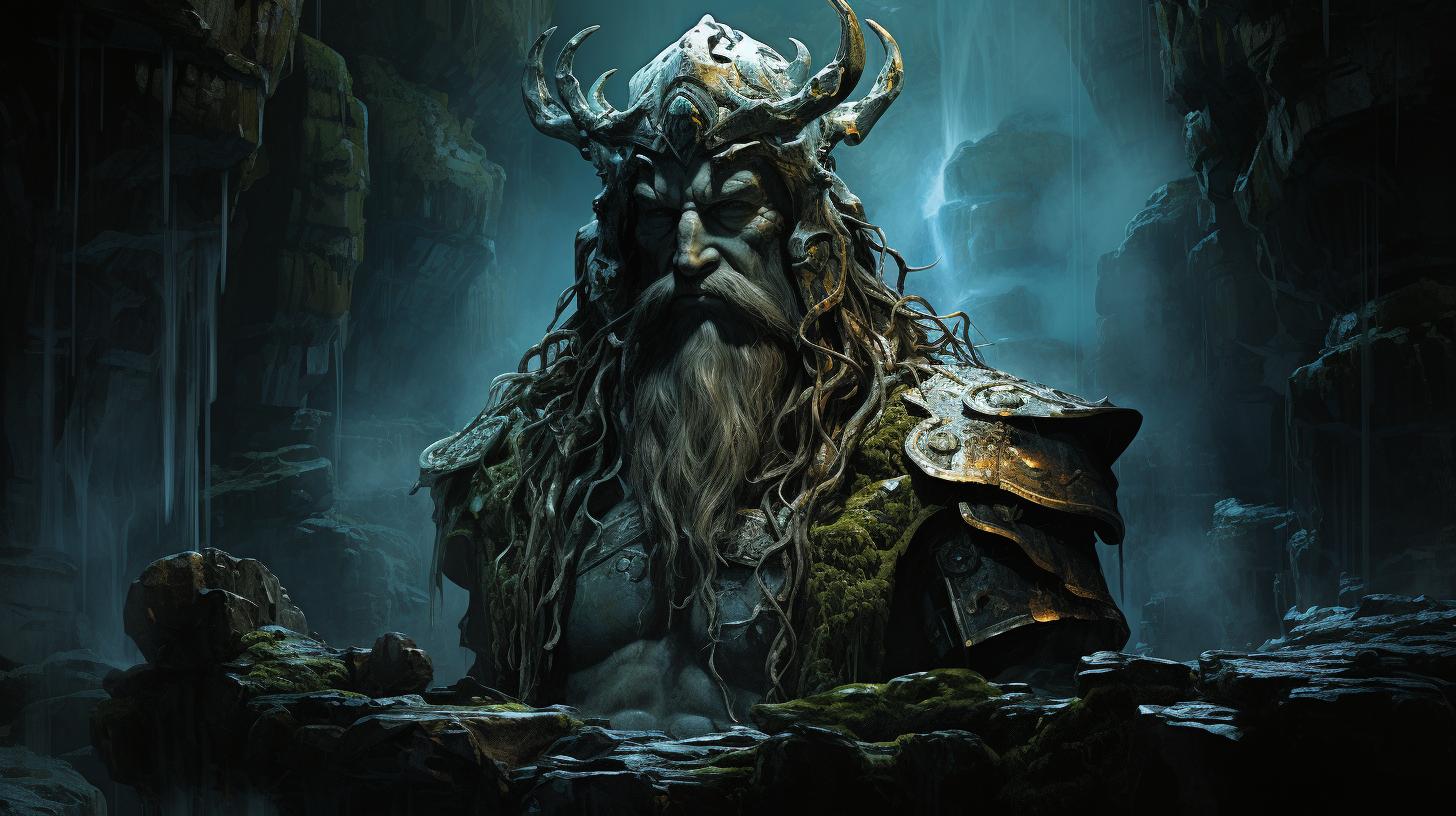Hodr Norse God: Mythology, Role, and Legends of the Norse Deity
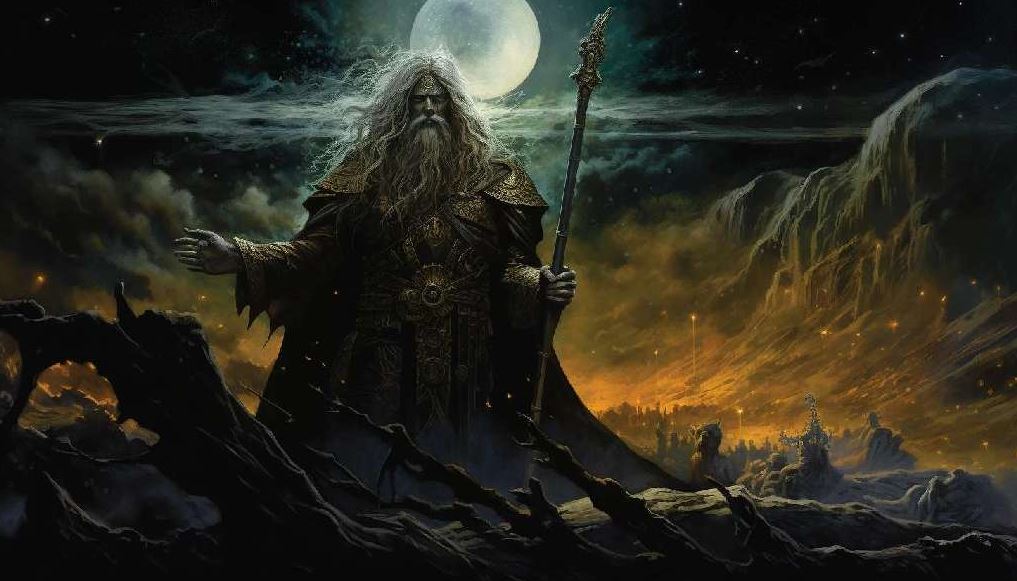
Hodr, also known as Höd or Hoder, is a significant figure in Norse mythology. As the blind son of Odin and Frigg, Hodr is often associated with darkness and the night.
His role is notably linked to the tragic death of Baldr, the most beautiful of the gods. In one version, Hodr is manipulated by the deceitful god Loki into killing Baldr with a spear made from mistletoe.
Another version portrays Hodr as a warrior rival who battles Baldr for the love of Nanna. These contrasting narratives highlight Hodr’s involvement in Baldr’s demise and his subsequent fate at the hands of his avenger.
The Norse deity Hodr continues to feature in various texts, poems, and even popular culture, further adding to the intrigue surrounding this enigmatic god.
Origins and Genealogy
Hodr, also known as Höd or Hoder, is an intriguing figure in Norse mythology with an intriguing lineage. He is the son of Odin, the mighty Allfather, and Frigg, the goddess of love and wisdom.
As one of the Aesir gods, Hodr is part of the divine pantheon that governs the nine realms of the Norse cosmos.
The genealogy of Hodr is intertwined with the intricate relationships of the gods. Odin, his father, is the chief deity and ruler of Asgard, while Frigg, his mother, is highly regarded as the queen of the Aesir.
This divine connection places Hodr in a significant position within the Norse mythological framework.
As a member of divine lineage, Hodr possesses inherent divinity and power. However, what makes him particularly distinctive is his association with darkness and blindness. This unique characteristic sets Hodr apart and shapes his role in Nordic myths, where he becomes entangled in the tragic tale of the death of Baldr, his brother.
Exploring the origins and genealogy of Hodr delves into the complex tapestry of Norse mythology, as his heritage unveils the intricate dynamics of the divine family and the pivotal roles the gods play in shaping the Norse cosmos.
Hodr’s Role in Nordic Mythology
Hodr’s involvement in the myth revolves around the tragic death of Baldr, his brother.
According to the predominant version of the myth, Hodr is tricked by the malevolent deity Loki into unknowingly causing Baldr’s demise. Loki crafts a spear from mistletoe, the only substance that can harm Baldr, and convinces Hodr to throw it, resulting in his brother’s immediate death.
This portrayal characterizes Hodr as a manipulated pawn, driven by devious forces to commit a grave act unknowingly.
However, an alternate version depicts Hodr not as a puppet but as a warrior engaged in a fierce rivalry with Baldr for the love of the maiden Nanna. In this account, Hodr wields a magical weapon obtained from the Underworld and inflicts a fatal wound upon Baldr during a heated battle.
As a consequence, Hodr meets his demise at the hands of Bous, the avenger of Baldr.
Both versions highlight Hodr’s pivotal role in the death of Baldr, albeit with differing portrayals. Whether depicted as a blind pawn or a fierce rival seeking revenge, Hodr’s involvement in the Norse mythology sets the stage for tragic events and consequences that shape the fate of the gods.
The Death of Baldr – Mythical Version
In the mythical version of the death of Baldr, Hodr, the blind son of Odin and Frigg, plays a pivotal role. According to this tale, Baldr was considered the most beautiful and perfect of all the gods, and his mother made every being swear not to harm him, except the mistletoe.
Exploiting this loophole, the cunning god Loki crafted a spear using mistletoe and tricked Hodr into throwing it at Baldr. Tragically, the spear pierced Baldr’s heart, causing him to instantly perish.
Although Hodr was unwittingly manipulated into committing this act, he faced consequences for his actions. As revenge for his brother’s death, Vali, Baldr’s brother, avenged him by killing Hodr.
This mythical version portrays Hodr as a pawn, blinded by his own participation in Baldr’s demise. His role highlights the tragic dynamic between the gods and the complex consequences that arise from their actions.
The death of Baldr represents a significant event in Norse mythology and showcases Hodr’s part in the tragedy. This infamous tale serves as a reminder of the dark undercurrents that flow through the pantheon of Nordic gods.
The Death of Baldr – Warrior Version
In an alternate version of the myth, Hodr is depicted as a warrior engaged in a fierce rivalry with Baldr. Both leaders of rival warbands, they competed for the affections of the maiden Nanna.
Hodr, with the aid of a powerful weapon obtained from the underworld, strikes Baldr in battle, ultimately causing his demise.
The clash between Hodr and Baldr symbolized the conflict between light and darkness, beauty and strength. As a warrior, Hodr sought to establish his dominance and prove his worth in the power struggles of the Norse world.
His actions were driven by ambition and desire, leading to the tragic end of Baldr.
However, the fate of Hodr would not go unchallenged. Baldr’s avenger, named Bous, sought retribution for his brother’s death and executed Hodr in a fitting act of vengeance.
This alternate version of the story portrays Hodr in a different light, emphasizing his role as a formidable warrior consumed by rivalry and the pursuit of power. It highlights the complexities and conflicts within Norse mythology, showcasing the intricate relationships between the gods and the tragic outcomes that resulted from their actions.
Hodr’s involvement in the death of Baldr within the context of this warrior version of the myth highlights the multifaceted nature of his character and his significant impact on Norse mythology.
Hodr’s Fate and Vengeance
After the tragic death of Baldr, Hodr faced his own fate and the consequences of his actions. In one version of the myth, Hodr is ultimately avenged by Vali, Baldr’s brother, as punishment for his role in Baldr’s demise.
Vali takes it upon himself to seek justice and takes Hodr’s life as retribution for his brother’s death.
In this version, Hodr’s fate emphasizes the cycle of vengeance that is prevalent in Norse mythology. The gods uphold the principles of justice and hold individuals accountable for their actions. Hodr’s tragic end serves as a warning of the repercussions one may face when succumbing to manipulation and causing harm to others.
The story of Hodr’s fate and vengeance sheds light on the complex dynamics within the pantheon of Norse gods. It showcases the interplay between fate, destiny, and personal choices, highlighting the consequences that can arise from making misguided decisions.
- Hodr’s fate is sealed by Vali, Baldr’s vengeful brother, as he seeks justice.
- His demise serves as a reminder of the importance of personal responsibility and the consequences of one’s actions.
- The cycle of vengeance and the pursuit of justice are integral themes in Norse mythology.
Overall, Hodr’s fate and vengeance add depth to the intricate tapestry of Norse mythology, showcasing the interplay between gods, mortals, and cosmic forces.
Hodr in Norse Literature and Poems
Hodr’s character appears prominently in various Norse literature and poems, showcasing his significance and role in the Norse mythological narrative.
In the Edda Poetic, an important collection of Old Norse poems, a poem called “Höd’s lay” or “Höd’s mead” references Hodr. The poem reflects on Hodr’s involvement in the death of the beloved god Baldr, highlighting his tragic fate as well.
Additionally, Hodr’s story is mentioned in the Edda Prose, a collection of Icelandic texts that provides detailed accounts of Norse mythology. These texts delve into Hodr’s background, family lineage, and his complex relationship with other gods.
Hodr’s character in literature and poems encapsulates his dual nature and the conflicting narratives surrounding his role in Baldr’s demise, thus adding depth and intrigue to his mythological presence.
Furthermore, Hodr’s portrayal in these ancient texts serves as a valuable source of insight into the cultural and spiritual beliefs of the Norse people during that era. His inclusion in such literary works demonstrates the enduring fascination and importance bestowed upon Hodr within Norse mythology.
Hodr in Popular Culture
Hodr, the enigmatic Norse god, continues to captivate popular culture with his intriguing mythology and role in the death of Baldr. From modern adaptations to references in various forms of media, Hodr’s presence can be seen in numerous ways.
Here are some notable appearances of Hodr in popular culture:
- In literature: Hodr’s character can be found in contemporary novels and fantasy literature inspired by Norse mythology. Authors often explore his complex nature, depicting him as a tragic figure or a catalyst for dramatic events.
- In visual arts: Hodr’s story has been visually reimagined in stunning illustrations, paintings, and art installations.
Artists often portray his blindness and affiliation with darkness, emphasizing the contrast between light and darkness.
- In music: Hodr’s myth has also inspired musicians and bands to incorporate elements of Norse mythology into their lyrics and album artwork.
Some compositions delve into the emotional resonance of Hodr’s role in the death of Baldr.
- In film and television: Hodr’s character occasionally appears in movies and TV shows that draw inspiration from Norse mythology.
Whether in animated adaptations or epic sagas, Hodr’s involvement in the tragic events of Baldr’s demise adds depth and intrigue to the storytelling.
- In video games: Hodr has become a significant character in video games that explore Norse mythology.
Players often encounter him as a supporting character, witnessing his role in the narrative unfold and contributing to the overall gameplay experience.
Hodr’s portrayal in popular culture serves to keep the Norse god’s story alive, enchanting audiences with his complex personality and his part in the timeless tale of Baldr’s death.
As our fascination with mythology continues to evolve, Hodr remains a compelling figure that invites further exploration and interpretation.
Frequently Asked Questions about Hodr Norse God
Curious to learn more about Hodr, the enigmatic Norse god associated with darkness and the tragic death of Baldr? Here are some frequently asked questions about Hodr and their answers:
- Q: What is Hodr’s role in Norse mythology?
Hodr is portrayed as a blind god of darkness and the night.
In one version of the myth, he is manipulated by Loki to kill the beloved god Baldr.
- Q: How did Hodr contribute to the death of Baldr?
In the mythical version, Hodr unknowingly throws a mistletoe spear at Baldr, causing his demise.
In the warrior version, Hodr uses a weapon from the underworld to harm Baldr during their rivalry for the love of Nanna.
- Q: What happened to Hodr after the death of Baldr?
Hodr faced his own fate at the hands of Vali, Baldr’s vengeful brother.
The specifics of his demise differ between versions, with Vali or Bous ultimately avenging Baldr’s death.
- Q: How is Hodr depicted in Norse literature and poetry?
Hodr’s name appears in various texts, including the Poetic Edda and Prose Edda, showcasing his significance in Norse mythology.
His role in the death of Baldr is often emphasized in these pieces.
- Q: How is Hodr portrayed in popular culture?
Hodr has made appearances in popular culture, most notably in the God of War video game series, which explores Norse mythology.
In these games, Hodr takes on a secondary role, connected to the legends and battles of the Norse world….











